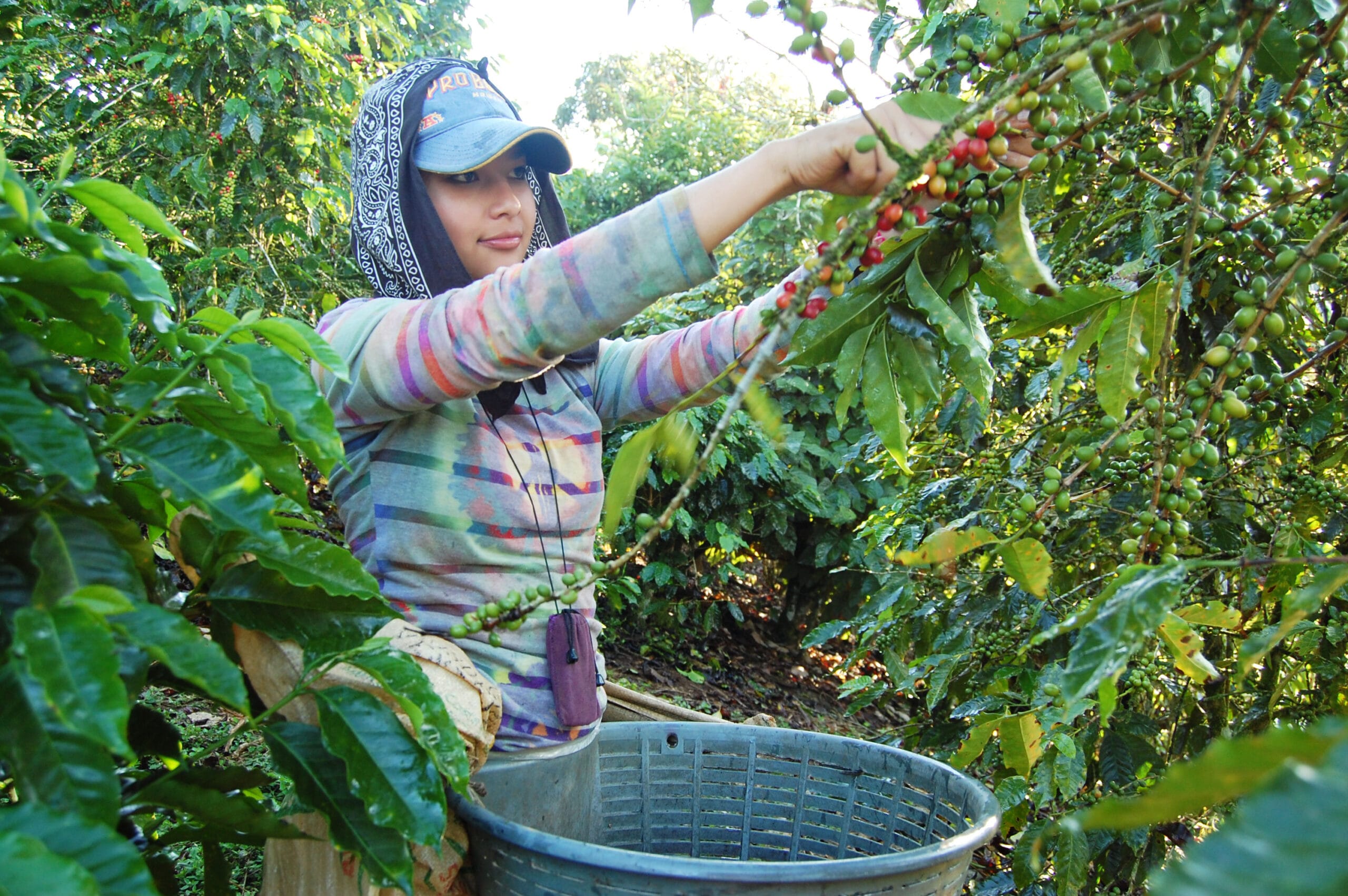
Why Direct Trade Coffee Is So Important
Nobody appreciates marketing gimmicks. Today our grocery stores are flooded with crafty advertisements… and most of the time it is doubtful what all of those labels actually mean.
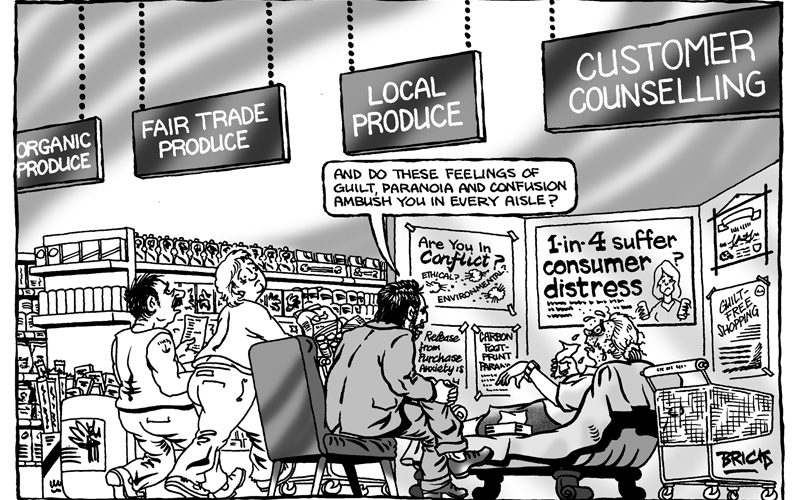
Cartoon Credit: developmenteducation.ie
Isn’t the cartoon kind of true? We want to shop responsibly, but often feel overwhelmed by all the marketing labels and claims? A popular label for many food products recently has been “Fair Trade”. Yet, this article from the Guardian sheds a little light on some of the issues facing the “Fair Trade” movement in coffee. At Javataza we believe that there is something more important than simply gaming the system so that you can have a good-looking, but not very meaningful certification to hang on the wall. At Javataza, we want to know that we are ACTUALLY having a real impact on our farmers.
To start the conversation, let’s talk a little bit about why we care about this issue in the first place.
In May of 2019, coffee prices on the stock market fell to their lowest point in more than a decade.
As an end user in the coffee chain, you likely didn’t notice a price decrease in your morning cup of joe. This is because the retail price of coffee is not often closely linked to the price being paid to coffee farmers. So, a sharp decline in the global coffee market is not going to have a quick impact on your monthly coffee drinking budget (yes, for some of us it needs to be a separate budget category).
For MILLIONS of families around the world, however, this decline makes a big difference on their ability to support themselves with basic living needs. Globally, the coffee industry supports over 21 million families. That is a lot of people being negatively impacted by a decline in the coffee industry. Many coffee farmers this year likely were not even able to break even from their coffee harvests.
Much of this decline in price is due to a surplus of coffee coming out of Brazil (the world’s largest exporter of coffee) in the past two years. According to this article, coffee farmers globally are feeling the effects from this surplus and many of them are being forced to abandon their farms to try to find something more sustainable to support their family. This could potentially wreak long-term havoc on the global coffee industry.
The struggles of coffee farmers ring true to us here at Javataza Coffee. Since we have people on the ground in coffee growing countries that have direct communication with coffee farmers, we are always hearing first-hand the strain that coffee farmers face.
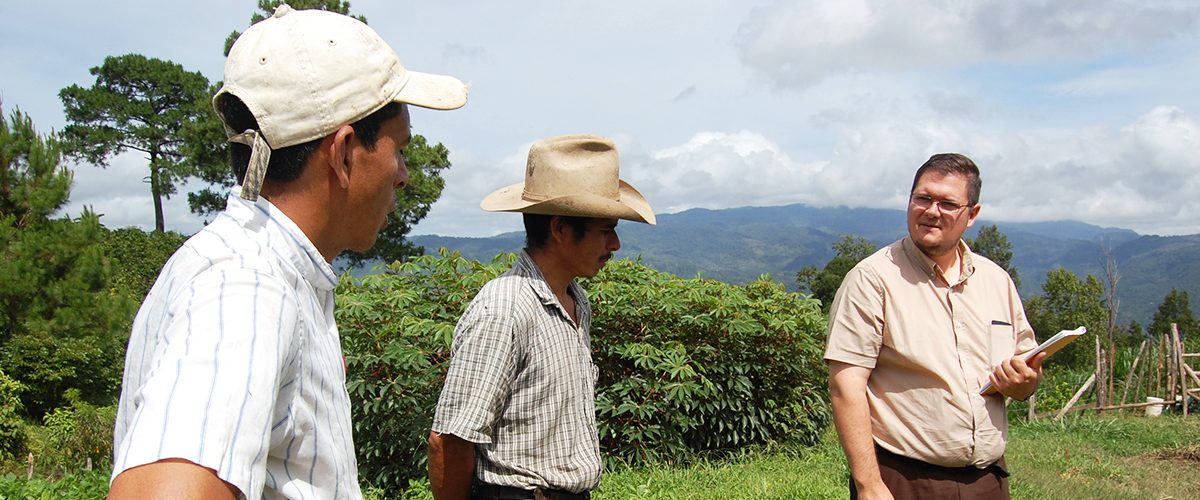
The Solution: Direct Trade
Jose Sette, the executive director of the International Coffee Organization has a suggestion for how to counter this global strain on coffee farming. He says that “a promising approach for, at least the specialty coffee sector is to foster direct relationships between growers and roasters.”(source)
That is called the direct trade model of coffee sourcing.
That is the passion that we operate out of.
What is Direct Trade Coffee?
Direct trade coffee is a mutually beneficial model of sourcing coffee in which roasters buy directly from individual coffee farmers. This relationship cuts out the middle man buyers and sellers and often other organizations that control certifications, etc… As a result the farmers are able to be paid a sustainable rate for their coffee that is well above industry standards. The roaster is also able to be much more involved in quality control and often works directly with the farmers to implement sustainable farming practices and improve the quality of the coffee being grown.
The Direct Trade Coffee Model Is Simple

Simply put, the goal of direct trade coffee is to put more cash into the hands of farmers. Simplicity in the supply chain means, better money for farmers and better quality control for the roaster. This is a win-win-win situation for farmer, roaster and consumer alike. Sometimes we refer to this coffee model as simply “Farm-To-Cup”.
We will never be able to completely eliminate the global rise and fall in coffee prices due to supply and demand. But we can make a difference. As more and more coffee is sourced through a direct trade model, the vulnerabilities that plague so many coffee farmers will be diminished, resulting in sustainability. Over the years Javataza coffee farmers are paid on average higher than market rates, some years averaging as much as 50% higher! We are never worried about not having enough coffee farmers to supply us with coffee. And, because of a sure income, our farmers don’t have to worry about having enough income to provide a living for their family this year.
This is why direct trade coffee is so important. It really does change lives. It is an honor and a privilege to share with you here some of the farmers that benefit from the direct trade model at Javataza. First, here is a video of our company giving an overview of how the direct trade coffee model works at Javataza.
How Direct Trade Coffee Works At Javataza
Direct Trade Coffee Farmers in Costa Rica
A more recent partnership that we were able to establish was with the Aprocome Coop in Costa Rica. The Aprocome Coop was started by a few brothers who were looking for a way to not only get better prices for their coffee but also to contribute to better sustainability for their land.
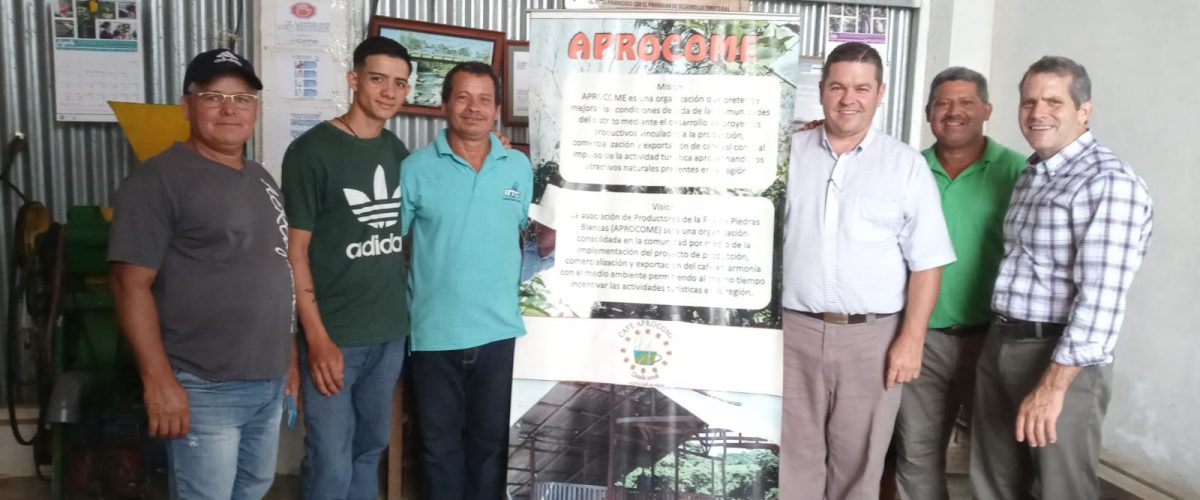
From left to right: Alfredo (Aprocome Owner), Damian (Son of Danilo), Danilo (Aprocome Owner), Nat Yoder (Javataza), Yeiner (Aprocome Owner), Gary (Javataza).
This photo was taken on a trip to Costa Rica in August of 2021. Working with Javataza was the first time that this company was able to get a sustainable price for ALL of their coffee production.
For us here at Javataza it has been a truly great partnership since both of us are benefiting. In this video below, Alfredo of Aprocome in Costa Rica shares about his experience in selling his coffee direct to Javataza.
We are so thankful that the farmers in Costa Rica are thankful for this special partnership. What makes us feel even better about this direct trade partnership is the way in which the Aprocome partners are committed to sustainability in their farming practices.
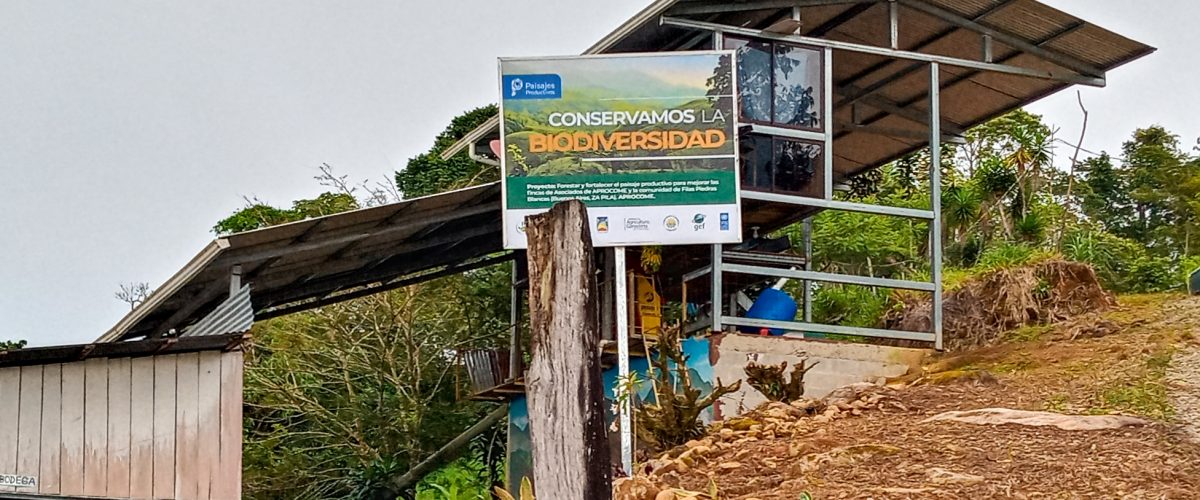
This photo is of the milling facility on the farm where they remove the red pulp from the coffee berries.
The sign displayed here is a prestigious biodiversity award given to the Aprocome Coop by the Costa Rican government for its sustainable farming practices. One of the main criteria for the award is that farmers are mixing multiple crops in the same area and protecting the habitat for local wildlife. The main crop that Aprocome mixes into their coffee fields is banana trees.
Part of the certification process requires cameras to be installed in the coffee fields to verify a thriving local wildlife population. Apparently, Aprocome’s desire to protect the environment is working, since wildlife and even cougars have been caught on camera!
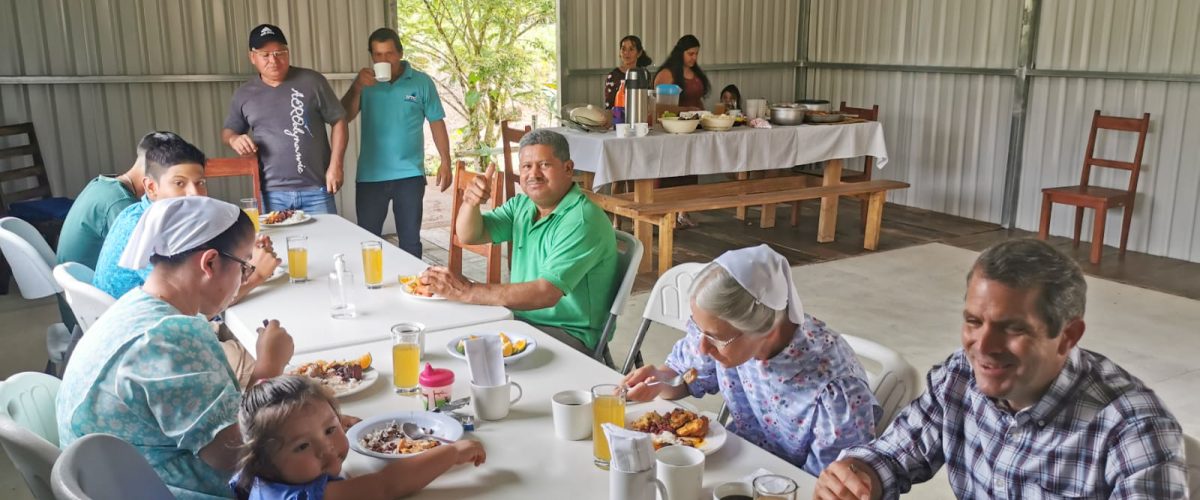
To show their appreciation for Javataza and the direct trade partnership that we have, the owners of Aprocome treated us to a fantastic lunch which included… Costa Rican Coffee of course!
We would love for you to try some of Aprocome’s outstanding direct trade Costa Rican Coffee. We have two different roasts for you to choose from as well as direct trade green coffee beans if you are interested in roasting some of your own!
Other Direct Trade Coffee Options
We source from many other fine growers throughout Central America. These regions include Colombia, Honduras, Costa Rica and Guatemala. In every case, we are committed to following the direct trade model of coffee.
Subscribe
Get added to our email list to receive Javataza updates!

©2024 Javataza Coffee LLC | Privacy Policy